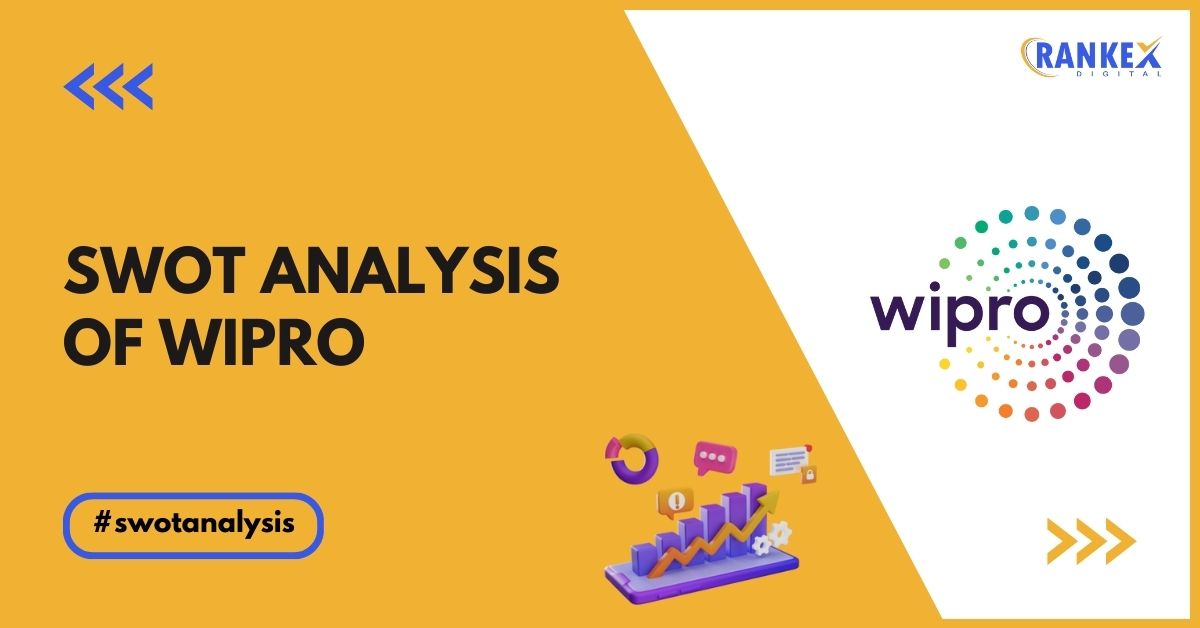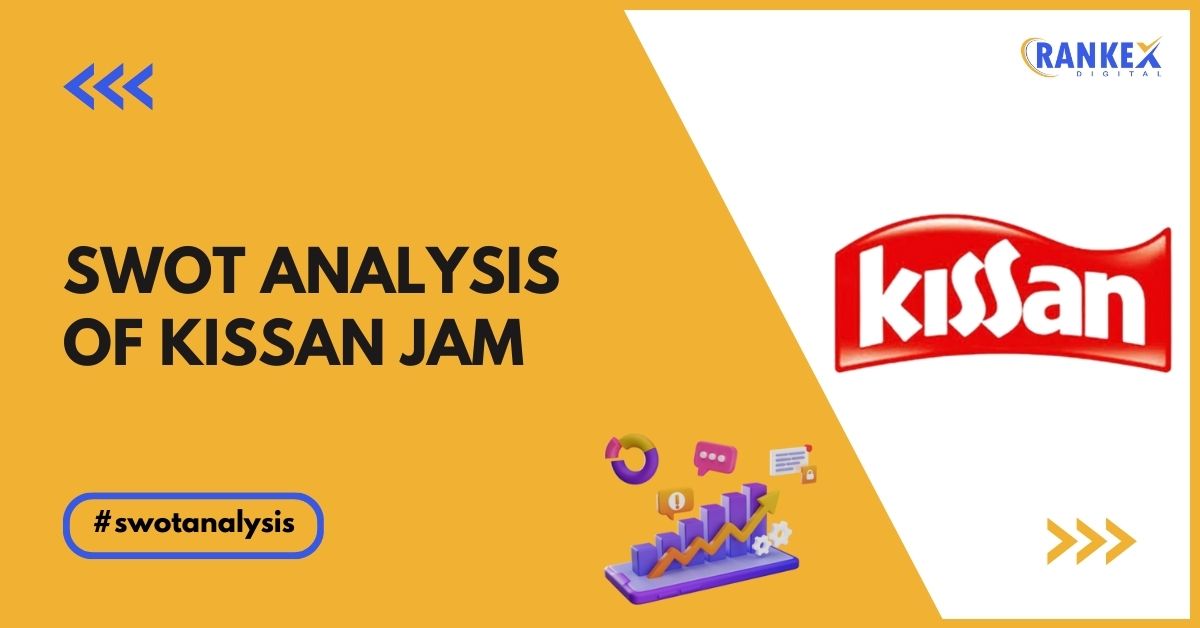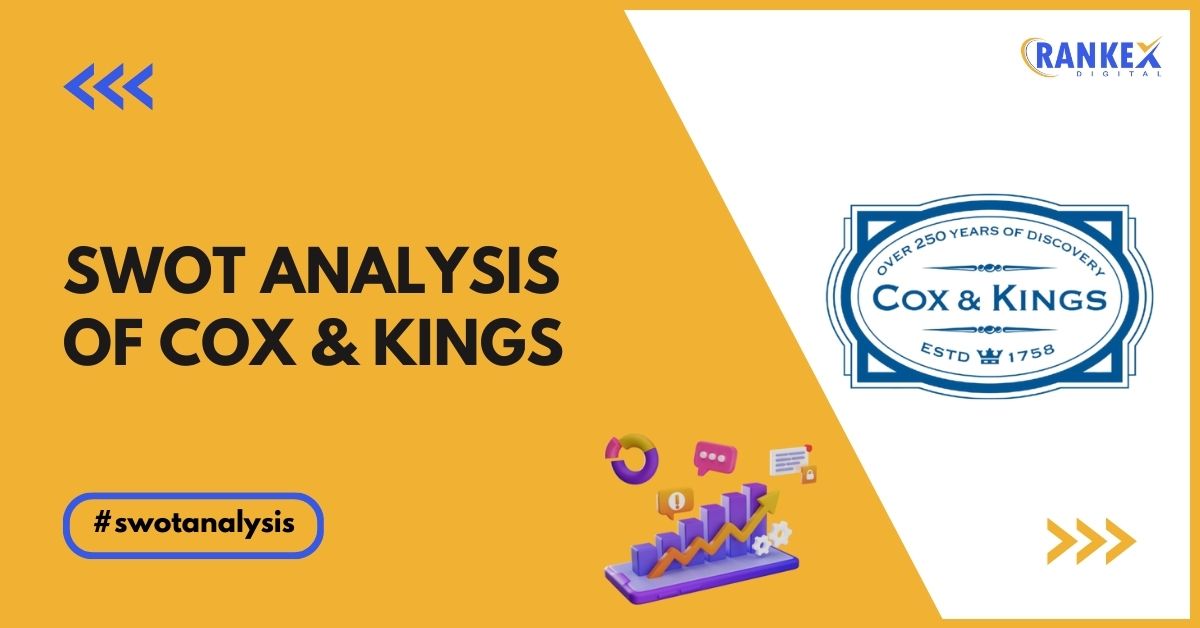Wipro, one of India’s largest IT services companies, continues to play a pivotal role in the global technology space. Known for its broad spectrum of IT services, consulting, and business solutions, Wipro has grown substantially over the years, driven by digital transformation and innovation.
Let’s dive int the SWOT analysis of Wipro, which outlines the company’s current strengths, weaknesses, opportunities, and threats.
In this blog
Overview of Wipro
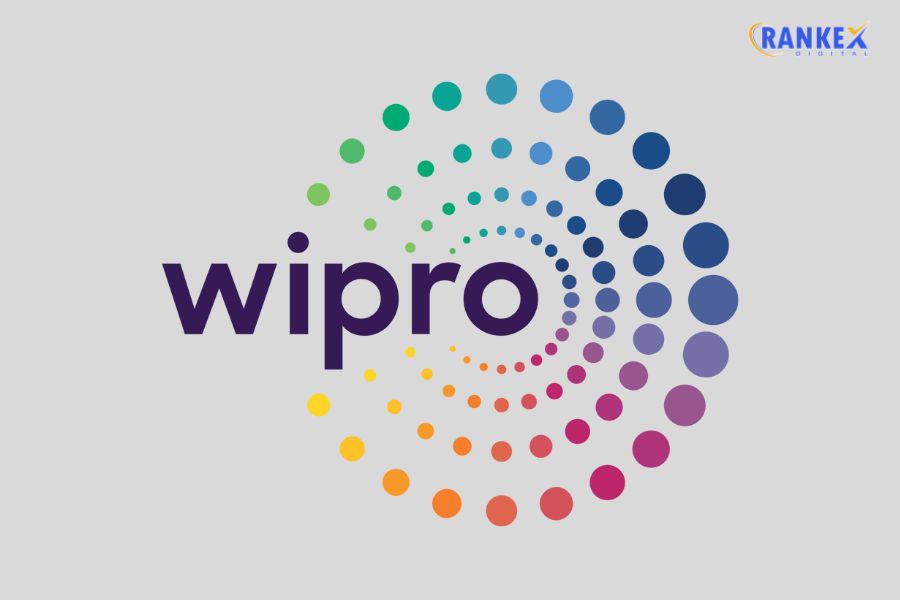
| Founder | M.H. Hasham Premji |
|---|---|
| Year Founded | 1945 |
| Origin | Amalner, Maharashtra, India |
| Industry | IT Services, Consulting, Business Solutions |
| Annual Revenue | $12.6 Billion (FY 2023) |
| Employees | 250,000+ |
Wipro has evolved from a vegetable oil company into a global leader in IT services. It focuses on driving innovation through technology and digital transformation. Wipro serves clients across industries, including healthcare, financial services, manufacturing, retail, and more.
Current News on the Market on Wipro
- Digital Transformation Push: Wipro is making strong strides in AI, cloud computing, and automation services, enhancing its role in the digital transformation of businesses globally.
- Sustainability Initiatives: Wipro continues to push its sustainability goals, pledging to be carbon neutral by 2040 and investing in green technologies and energy-efficient solutions.
- Acquisitions and Collaborations: Wipro is expanding its footprint through strategic acquisitions like Capco (consulting services) and continuing partnerships with technology giants such as AWS, Microsoft, and Google Cloud.
- Investments in AI: Wipro is heavily investing in AI-driven solutions to accelerate business processes, including the development of AI-based automation platforms for business transformation.
- Focus on Cybersecurity: Wipro is investing in strengthening its cybersecurity services, particularly with growing cyber threats in the digital era.
SWOT Analysis of Wipro
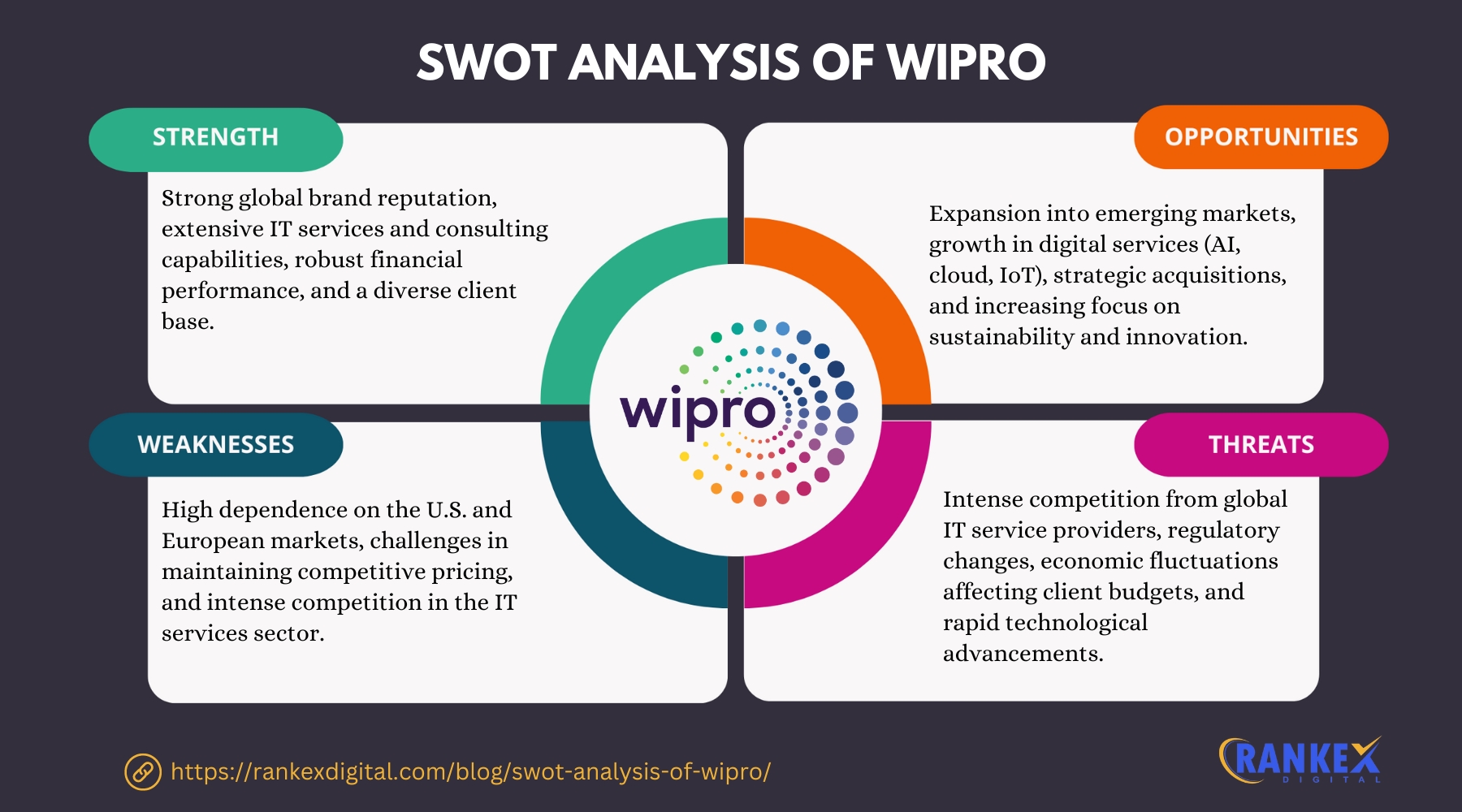
Strengths of Wipro
- Strong Brand Reputation in IT Services
Wipro has established itself as one of the most reputable and recognized IT services companies globally. Its consistent performance and commitment to excellence have built strong client trust. - Diversified Service Offerings
Wipro offers a broad range of services, including consulting, IT services, business process outsourcing (BPO), cloud solutions, cybersecurity, and data analytics. This diversification provides resilience and multiple revenue streams. - Global Delivery Model
Wipro’s global delivery model allows it to operate efficiently across multiple geographies, offering services to clients in over 60 countries. Its wide presence enables Wipro to tap into diverse markets and client bases. - Focus on Sustainability and Green Technology
Wipro’s sustainability efforts, including commitments to reducing carbon footprints and investing in renewable energy, enhance its reputation as a responsible corporate entity and attract clients focused on sustainability. - Robust R&D and Innovation Focus
Wipro invests significantly in research and development (R&D), allowing the company to innovate and offer cutting-edge technology solutions like AI, automation, and IoT. These innovations keep Wipro ahead of market trends.
Weaknesses of Wipro
- Dependence on Key Markets
A significant portion of Wipro’s revenue comes from the U.S. and European markets. Over-reliance on these markets exposes the company to risks related to economic slowdowns, regulatory changes, or trade issues in these regions. - Lower Margins Compared to Competitors
Despite its size, Wipro’s profit margins lag behind some of its larger competitors like TCS and Infosys. This can be attributed to pricing pressures, high operational costs, and stiff competition in the IT services market. - Slow Adaptation in Certain Service Areas
While Wipro excels in several technology domains, it has been slower to gain leadership in fast-growing areas such as artificial intelligence and cloud services compared to competitors like Accenture and TCS. - High Employee Attrition Rates
Wipro, like many other IT firms, faces high employee attrition rates. The IT services industry often sees talent poaching by competitors, leading to talent shortages and recruitment challenges. - Bureaucratic Decision-Making
Wipro’s size sometimes results in slower decision-making processes, especially in comparison to more agile and innovative competitors. This can hinder its ability to respond quickly to market changes or client demands.
Opportunities for Wipro
- Expansion in Emerging Technologies
Wipro has ample opportunity to expand its expertise in emerging technologies such as artificial intelligence, machine learning, IoT, and blockchain. This will allow Wipro to offer more advanced solutions for digital transformation. - Growth in Cloud Computing Services
With more organizations migrating to the cloud, Wipro can expand its cloud services portfolio by partnering with giants like AWS, Microsoft Azure, and Google Cloud, as well as developing its own cloud solutions. - Increased Demand for Cybersecurity Services
As cyber threats continue to rise, Wipro can capitalize on the growing demand for cybersecurity services, offering robust solutions to enterprises that need protection in a digital-first world. - Acquisition of Niche Technology Firms
By acquiring smaller, specialized technology firms, Wipro can enhance its capabilities in niche areas like data analytics, AI, and automation. This will strengthen its competitive positioning and help meet evolving client demands. - Focus on Digital Transformation for SMEs
There is increasing demand from small and medium enterprises (SMEs) for digital transformation services. Wipro can tailor its offerings to this segment, especially in emerging markets where SMEs are rapidly adopting technology.
Threats to Wipro
- Intense Competition in the IT Services Sector
Wipro faces fierce competition from global and regional players such as TCS, Infosys, Accenture, IBM, and Capgemini. This high level of competition leads to pricing pressures and client retention challenges. - Economic Uncertainty
Global economic instability, inflation, or recessions can negatively affect client spending on IT services. Wipro’s performance is vulnerable to changes in client budgets, especially during downturns. - Regulatory Challenges
Increasing regulatory requirements in terms of data protection, privacy laws (such as GDPR), and labor regulations in various countries can increase compliance costs for Wipro and slow down international expansions. - Currency Fluctuations
As Wipro operates in multiple countries, fluctuations in foreign exchange rates could impact its financial performance, particularly if the Indian Rupee strengthens against the U.S. Dollar, which is Wipro’s largest revenue source. - Attrition of Skilled Workforce
Talent retention is a significant challenge in the competitive IT services sector. Losing top talent to competitors can affect Wipro’s ability to deliver complex solutions and maintain high service quality.
Competitors of Wipro
- Tata Consultancy Services (TCS)
As the largest IT services firm in India, TCS competes directly with Wipro in various segments, including IT services, consulting, and business solutions. - Infosys
Another major player in the Indian IT industry, Infosys competes with Wipro across a range of IT services, particularly in cloud computing, digital transformation, and AI. - Accenture
Accenture is a global leader in consulting and IT services, offering a wider range of advanced technology solutions. It poses stiff competition to Wipro in emerging technology domains. - IBM
IBM competes with Wipro, especially in cloud services, cybersecurity, and AI-driven solutions. IBM’s extensive R&D capabilities and established global presence make it a strong competitor. - HCL Technologies
HCL competes with Wipro across multiple IT services domains, particularly in infrastructure management and application services. HCL’s aggressive growth strategy puts it in direct competition with Wipro.
Conclusion
Wipro remains one of the top global IT services companies, with strengths rooted in its brand reputation, diverse service offerings, and sustainability initiatives. However, it faces challenges such as heavy dependence on key markets, competition, and talent retention.
By capitalizing on opportunities in emerging technologies, cloud computing, and cybersecurity, Wipro can strengthen its market position. To stay competitive, Wipro must address internal weaknesses and mitigate external threats posed by intense competition, regulatory challenges, and economic uncertainties.
Frequently Asked Questions
1. What are Wipro’s main strengths?
Wipro’s strengths include its strong global reputation, diversified service offerings, extensive global delivery model, focus on sustainability, and continuous innovation in emerging technologies.
2. What challenges does Wipro face recently?
Wipro faces challenges such as reliance on key markets, intense competition, high employee attrition rates, and slower adaptation in emerging technologies like AI and cloud services.
3. What are the growth opportunities for Wipro?
Wipro’s growth opportunities include expansion in emerging technologies, cloud computing services, cybersecurity solutions, and digital transformation offerings for small and medium enterprises (SMEs).
4. How does Wipro compete with TCS and Infosys?
Wipro competes with TCS and Infosys by offering a wide range of IT services, consulting, and business solutions, while also focusing on innovation in digital transformation, AI, and cloud computing.
5. What is Wipro’s focus on sustainability?
Wipro is committed to sustainability goals, including achieving carbon neutrality by 2040 and investing in green technologies and energy-efficient solutions, positioning itself as a responsible corporate entity.

